A couple of months ago, I received an email from Netgear asking me (and others I’m sure) to fill out a survey in order to receive a gaming router and switch in exchange for a review. Thinking, “I’m small fry, they’ll never send me one.”, I filled it out and sent it off. A few weeks later, a massive box arrived at my door with these two things in it:
I was both surprised and horrified. I’d never used a separate router before, let alone a switch. I just connected every dang thing to my cable modem and been done with it (which might’ve explained the dropped frames I’d been getting, but more on that in a moment), so I had no idea what to do with the thing, to be perfectly honest. The instructions that came with the router were marvelously simple: Use the provided ethernet cable to connect the router to your modem.
So about a month ago, I did, and only connected one thing to the router: my gaming PC. I left everything else — Playstation, Steam Link, etc — on the cable modem. I then followed the instructions to set up the in-system software, called DumaOS. It comes with a really pretty dashboard, which looks like this:
Unfortunately, it doesn’t like Bitdefender very much, so I began getting errors like these:
Oddly enough, the software works FINE in Incognito Mode in Chrome. Regardless, it has a lot of nice features. You can see which pieces of hardware are using your router:
And you can set bandwidth settings PER DEVICE, which is so cool, so I totally did:
I was then told later, on the DumaOS forums, that I should tweak my settings a bit like this:
Which has actually been pretty dang great so far. The software, overall, is way, WAY more user-friendly than the software on the ARRIS cable modem I’d been using, and when it’s not crashing (I’ve read Bitdefender will release a fix for this issue soon) it works great. So far, the software portion of the router has been preeeetty fantastic.
Once I got everything set up properly. I then tested it with what I thought would be two demanding games: Frontier Pilot Simulator and Redout Enhanced Edition. I figured these fast, demanding games might put some extra weight on the stream.
As you can see, they both look great, especially Redout. I was also happy to see that there were few, if any, dropped frames. I was pretty impressed by how stable my connection was throughout both streams, but the real test came a few days later, during my first podcast — on Starmancer — when using the router:
To my delight, I barely dropped any frames at all during the show, which is really unheard of. Tuesdays are TERRIBLE for the Internet, and we usually either drop some frames or have issues with our Discord connection. Since the background video was just a looped video, it wasn’t TOO strenuous on my connection, thankfully. However, the real tests were soon to come.
Later that week, I streamed EVE Online, an older, not super demanding game, for three hours. Since this was an online game, I figured it might test the stability of the connection a bit, and test it did.
We dropped a few frames and even stuttered a bit, but overall it was nothing serious.
The real changes were yet to come though. Satisfied with the router’s performance, I called Spectrum to ask if they could switch their modem to bridge mode, so I could use the router exclusively. This was done before the EVE stream, which likely helped keep stability issues to a minimum. However, I also asked if they could diagnose my dropped frame issue. They did a connection test, determined that I was indeed dropping packets, and set an appointment for a technician to come out THE NEXT DAY. Conveniently, the appointment was AFTER the EVE stream. Hat tip, by the way, to Excelsior on our Discord server for telling me what to say when speaking with Spectrum.
The Spectrum technician was GREAT. He gave me a new modem, new connectors for the cables in my apartment, and even for my connection in the junction box. We then tested the connection and found no stability issues. What better way to test this, therefore, than a podcast where we stream several of us talking over Discord while simultaneously playing a fairly demanding online-only game like Elite Dangerous.
Now I gotta tell ya, usually on Tuesdays, when we do our podcast, I turn off everything Internet-related that I’m not using for the show. Dropbox, Evolve, Teamviewer, etc. all get killed. Well, this time, I forgot to turn off Dropbox. This is usually an issue because I’m recording audio to a Dropbox-shared folder, so it’s constantly trying to sync that file, killing my connection. This has happened before several times, which is how I learned to turn everything off in the first place. This time, however, Dropbox kept trying to sync sync sync all the way through the show.
We didn’t drop one frame. In two hours. NOT ONE. I was utterly and completely floored. The router had proved it’s worth. Now time for more testing.
I then took this time between streams to install the switch. I’d never used a switch before, but it was even easier to set up than the router, and also comes with a nice interface:
From here, you can set bandwidth allotments for each individual port, and it comes with presets for gaming and media streaming:
I basically have it set up so that my PC gets all of the bandwidth, while the PS3 gets most of the rest and so on. It’s really easy to set up, and has its own monitoring suite so you can see how things are going:
Once I was sure everything was up and running for a spell with no problems, I ran another test of a really fast game, Ion Maiden, a few days later and again was pretty happy with the results.
This is when someone told me I wasn’t doing enough to really test the connection. I had to be streaming multiple things at once to really put it through its paces, so I did. Using Twitch so I could stream music, I loaded up EVE Online, Spotify, Netflix on my phone using my account, and Netflix on the PS3 using the wife’s account. This lasted all of thirteen minutes before the connection died. You can see this stream here, since embedding Twitch streams causes them to autoplay, which is ridiculous.
I then thought, alrighty then, I suppose I learned the limits of my connection. The next day, ran another test just streaming Netflix from my phone while still playing EVE Online and streaming music from Spotify, with far better results, which you can watch here if you like, as again, Twitch’s autoplay is freaking stupid. Part of this recording is muted due to the music, FYI.
I’ve also played online games of Titanfall 2 and Plants vs. Zombies Garden Warfare 2, and not once did I have a connection or lag issue. I tell ya, this new equipment is really great for keeping a gaming connection stable.
Beyond gameplay, the router has exceptional WiFi. I used to have trouble getting signal at the opposite end of the apartment, in my office where I’m writing this, but as of right now, my phone as 47% signal strength, and has no problems connecting to the WiFi. The router has two frequencies, the usual 2.4 and 5 GHz, and will determine which device using which channel on its own, so rather than setting two WiFi points — one for for each frequency — as I had to for my cable modem, now it’s just the one connection for everything, which is far simpler. Overall, our WiFi connection has improved significantly. When it comes to streaming media on the PS3, whether from the PC or from services like Netflix or Hulu, we’ve not had one problem since the switchover, which is super important since we watch streamed stuff evvvvery day.
Oh, and it even has mobile apps like this one!
So I’ve been using the router for a month now, and the switch for a couple of weeks, and I am super happy with the performance of both units. They were easy to set up, easy to use, and have helped make my connection via my various streams much more stable. These units might be a bit expensive, truth be told, but if you’re looking for something to help make your connection better, these would likely help a lot. I hope you’ve enjoyed this story masquerading as a hardware review, and thank you for reading it. ;)
Note: You can follow the links on the XR500 or SX10 official pages for buy links and the like.
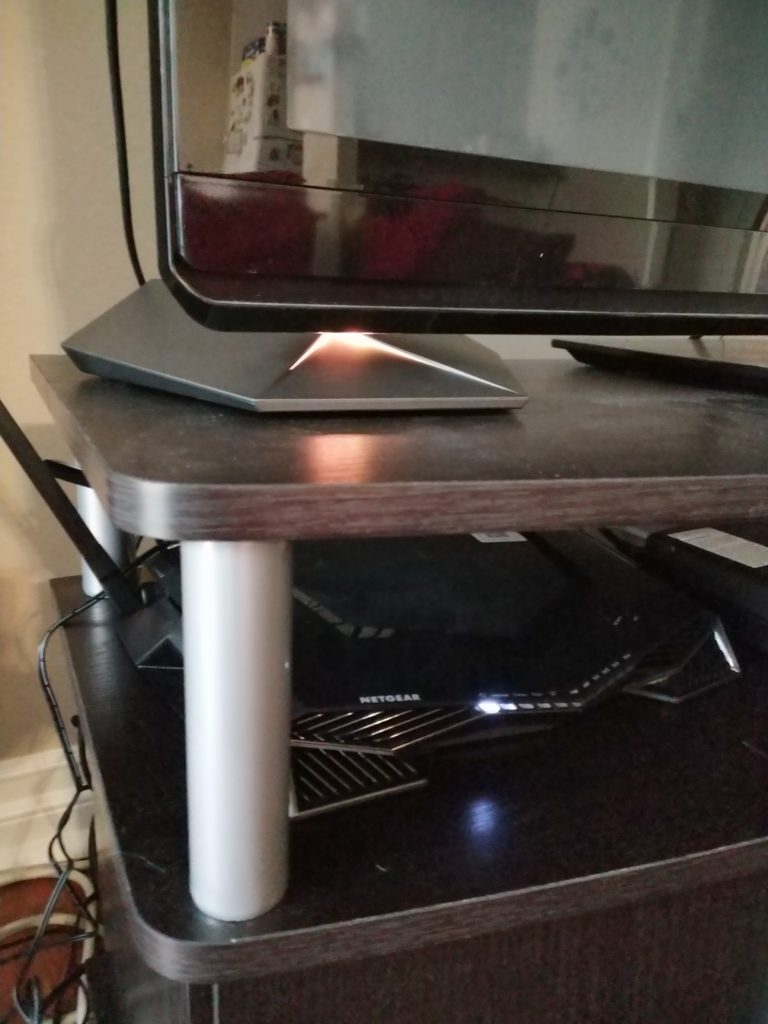
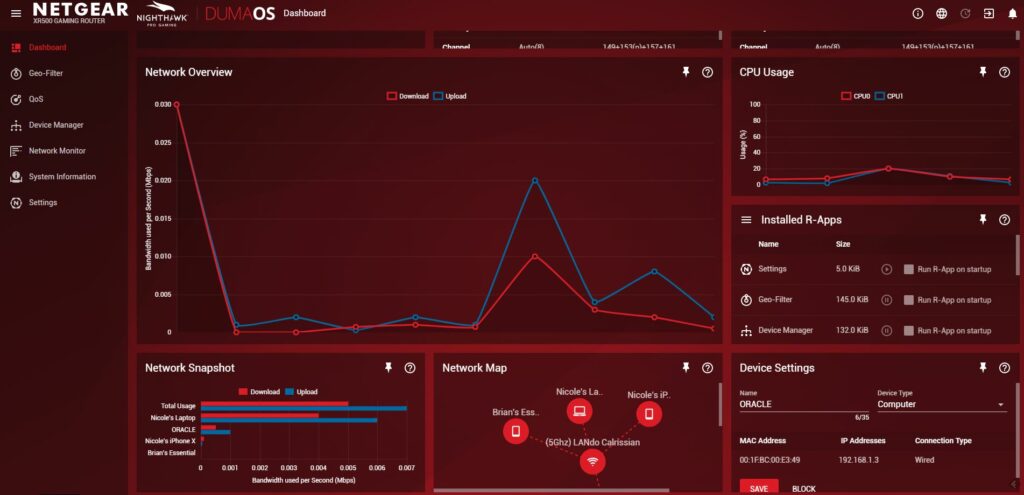
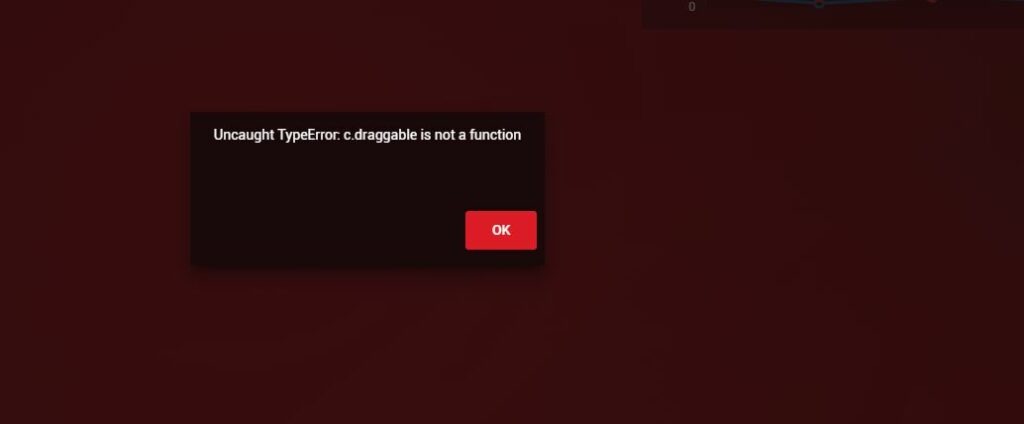
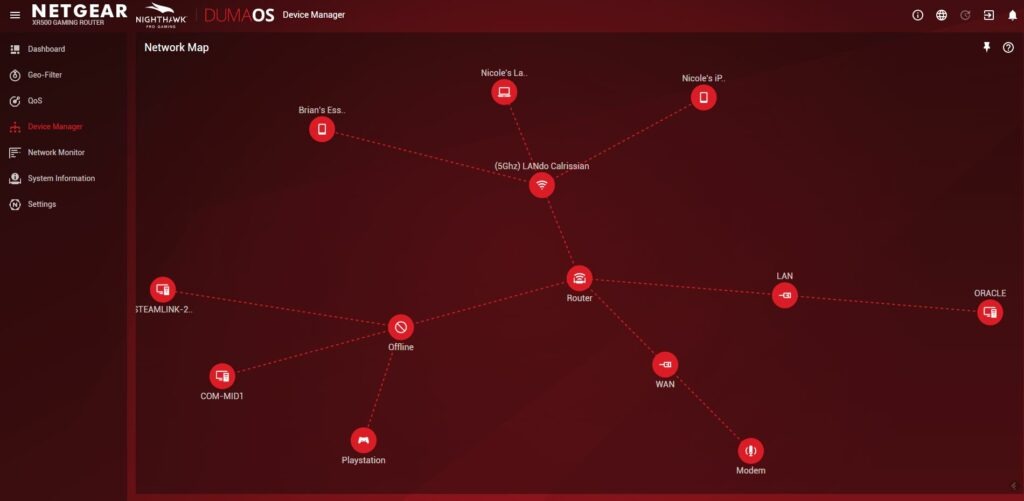
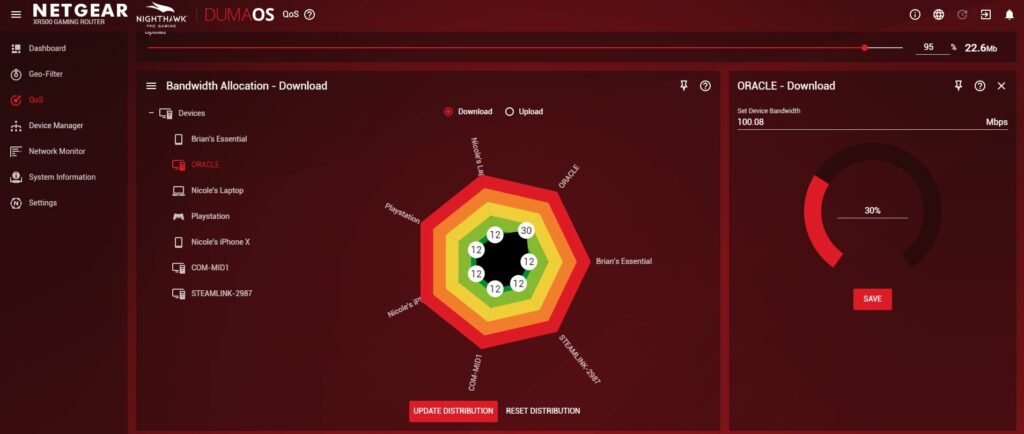
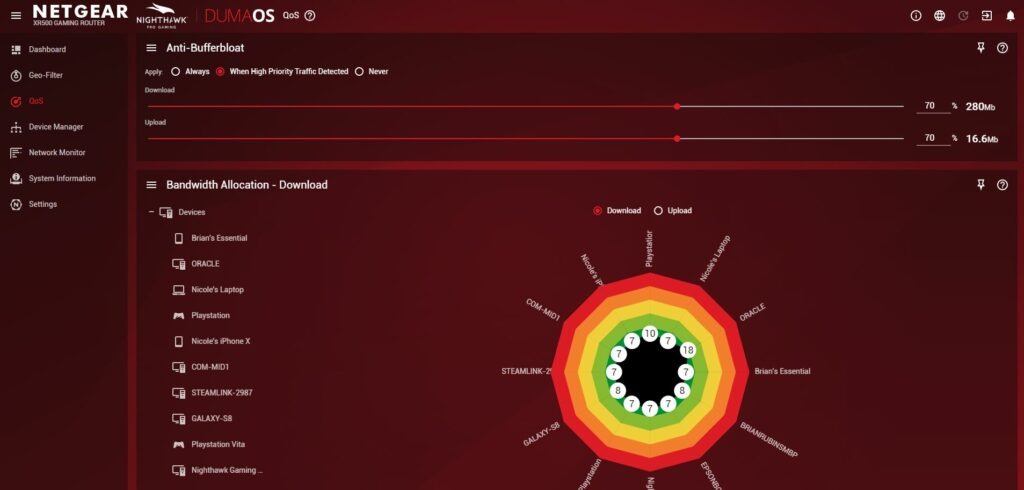
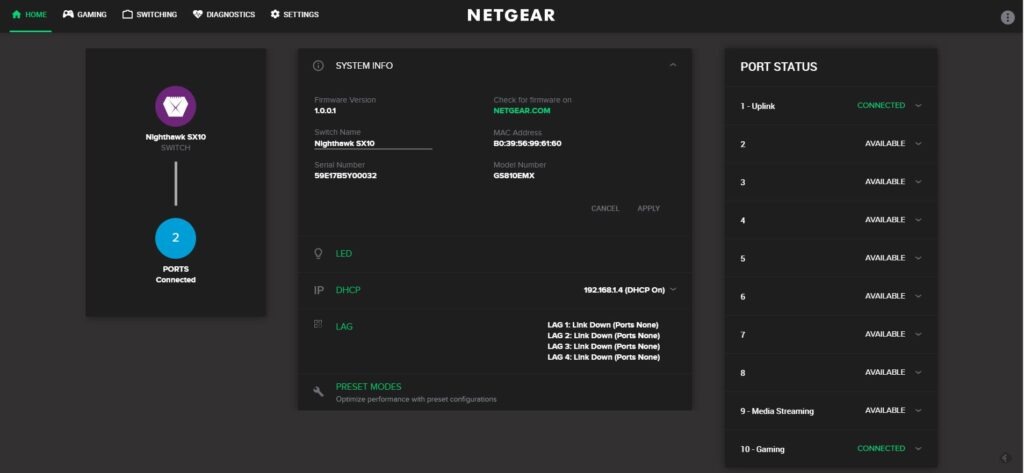
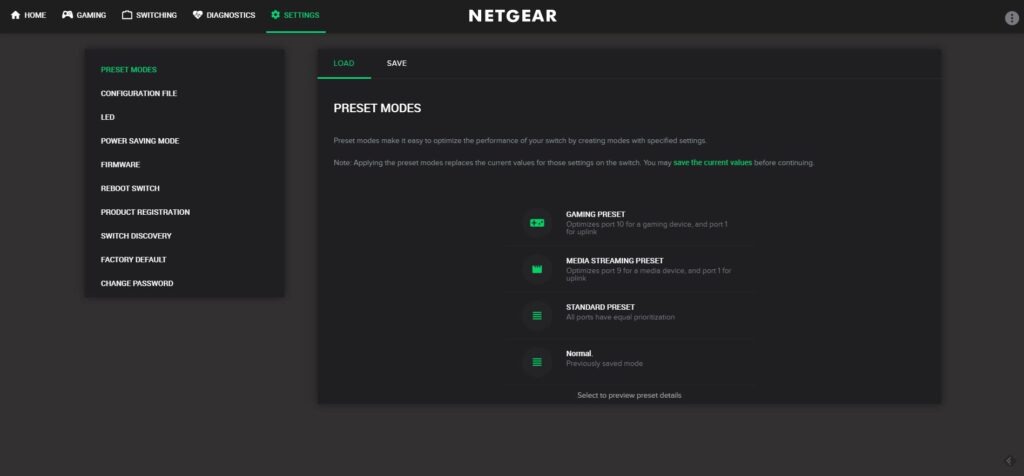
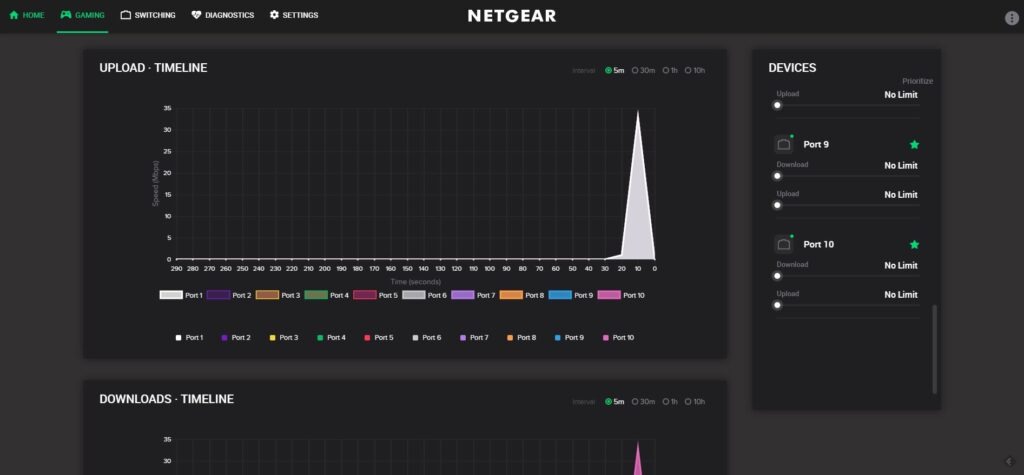
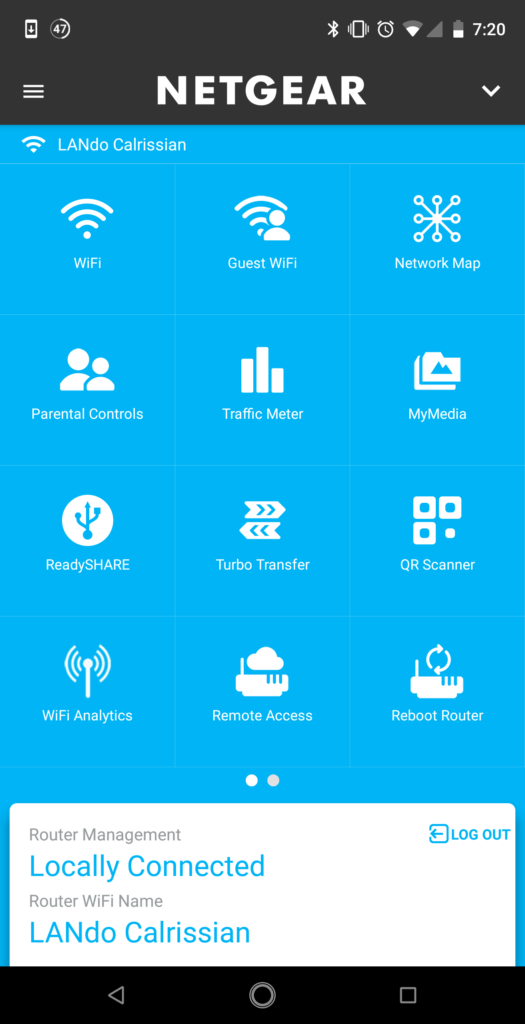
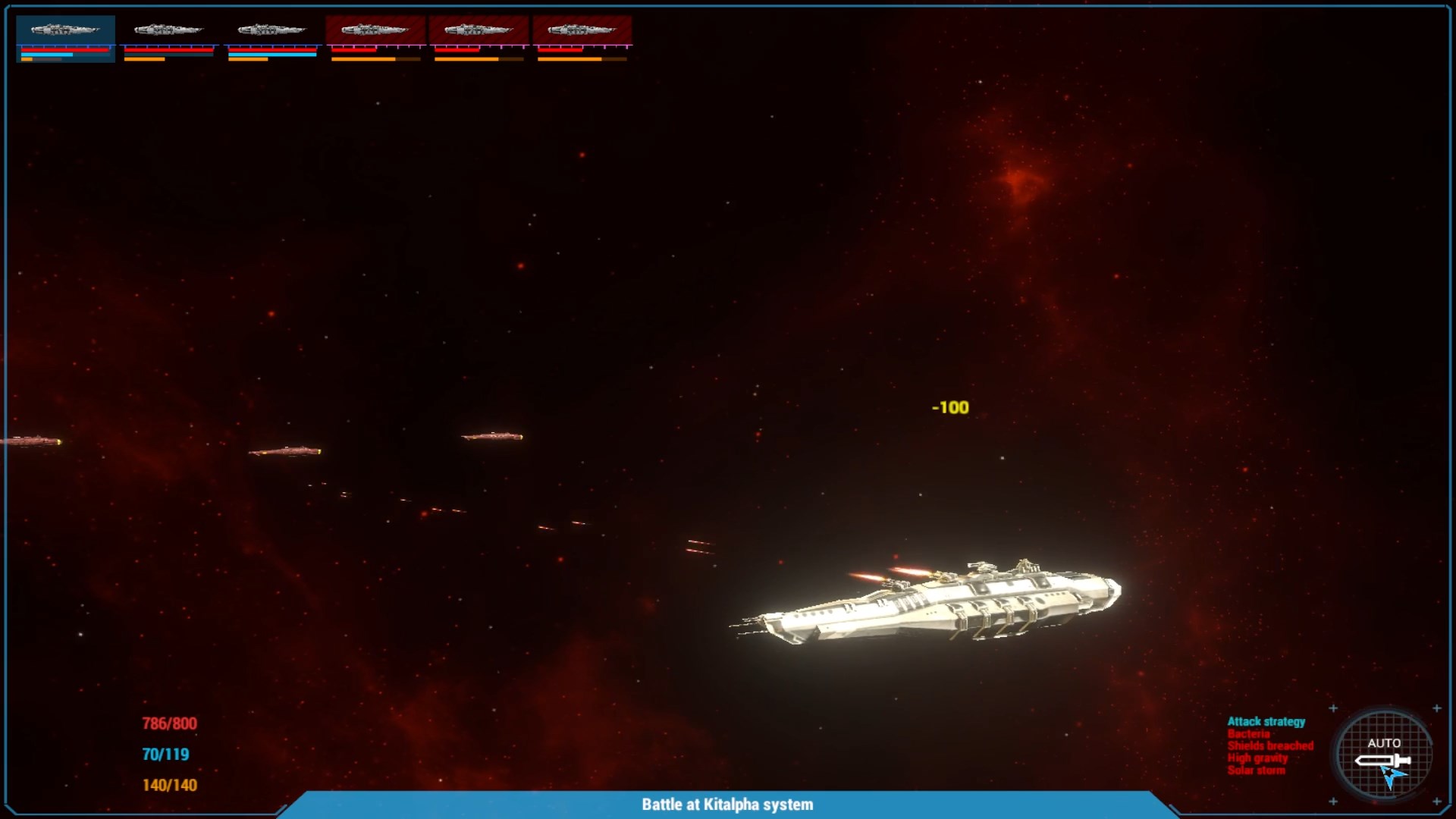

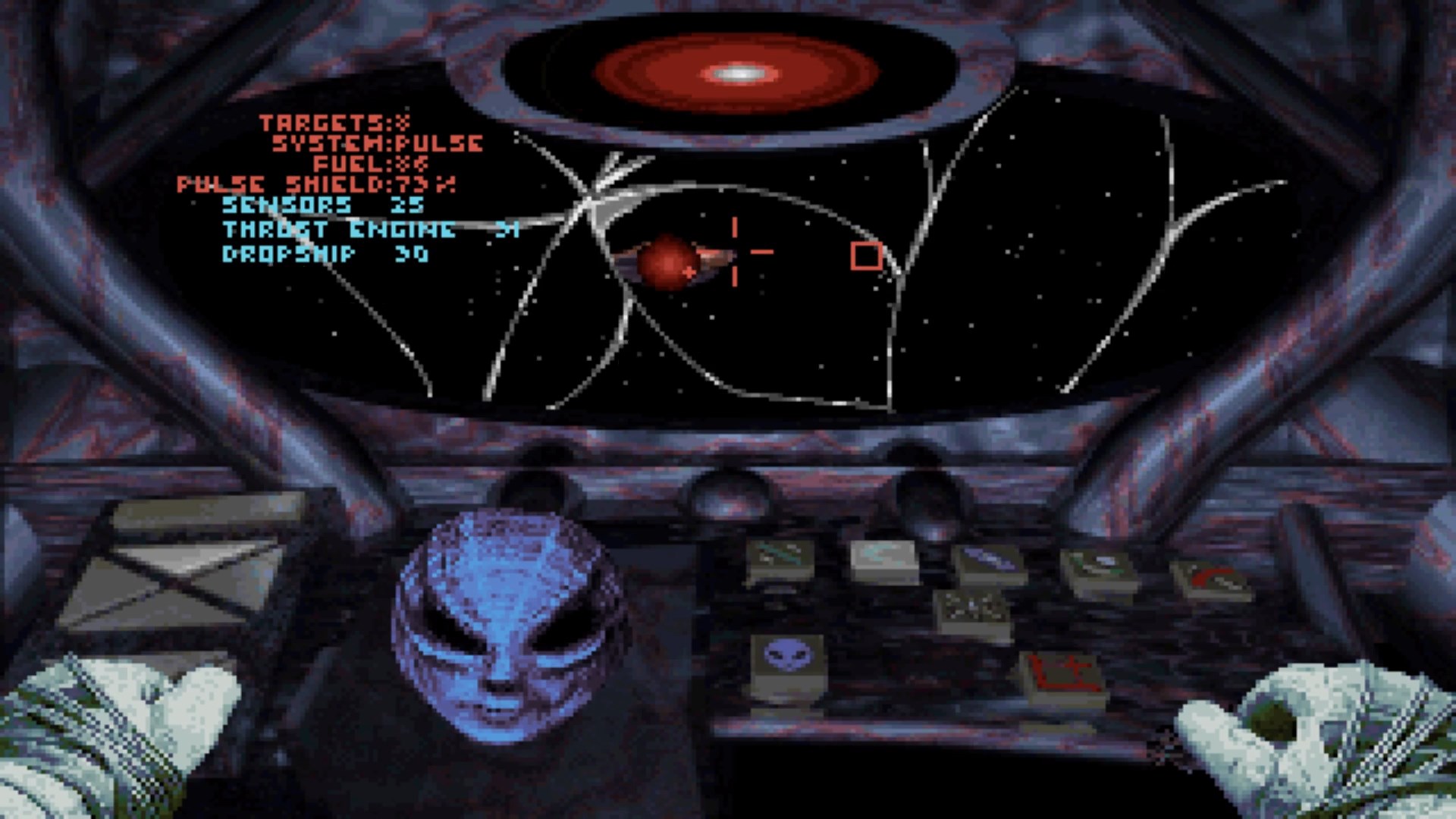






Thanks for the great review! I am glad you are enjoying it! Big thanks from the NPG team!
OMG hi Ben! Thanks so much to you and your team for some great equipment!